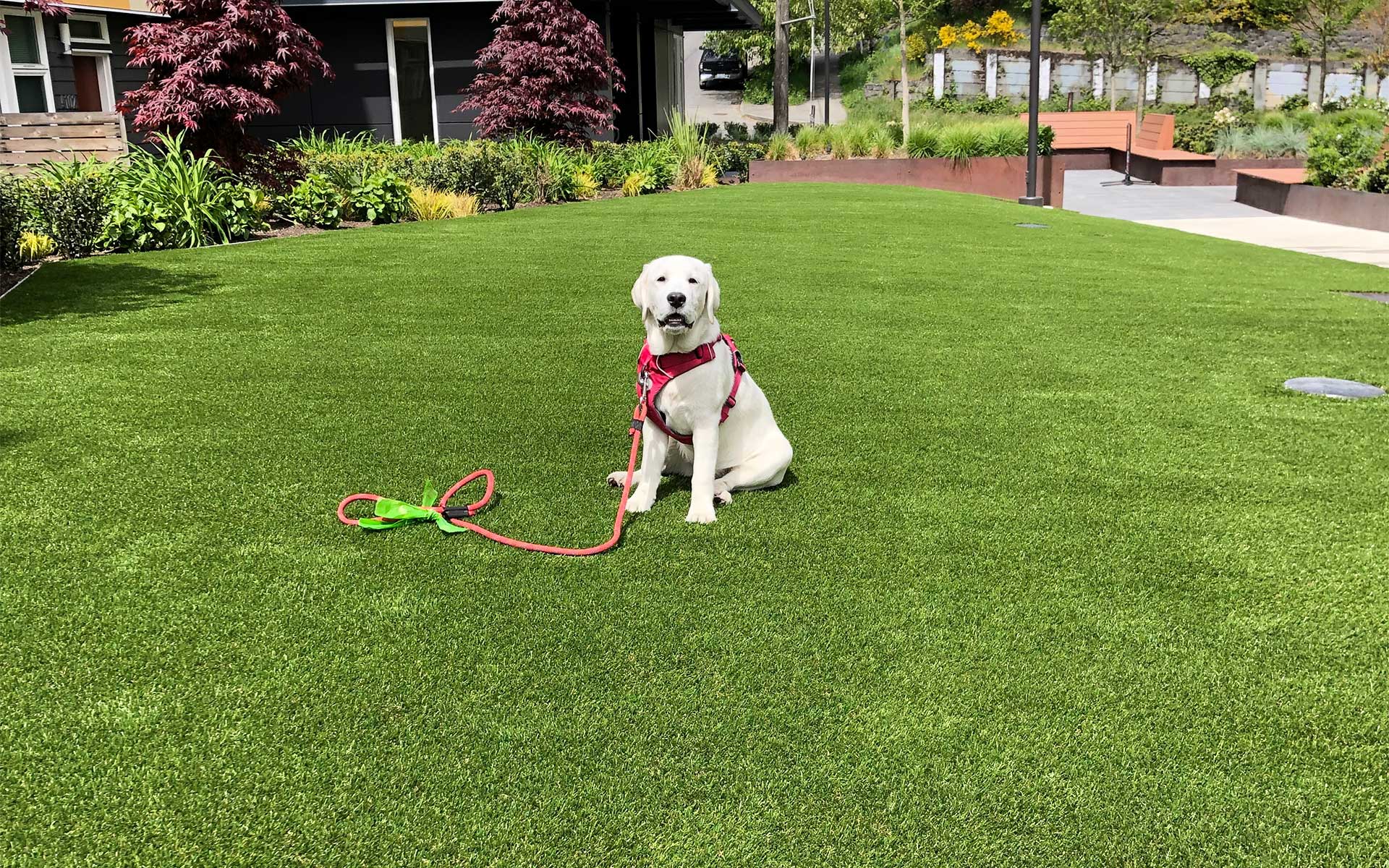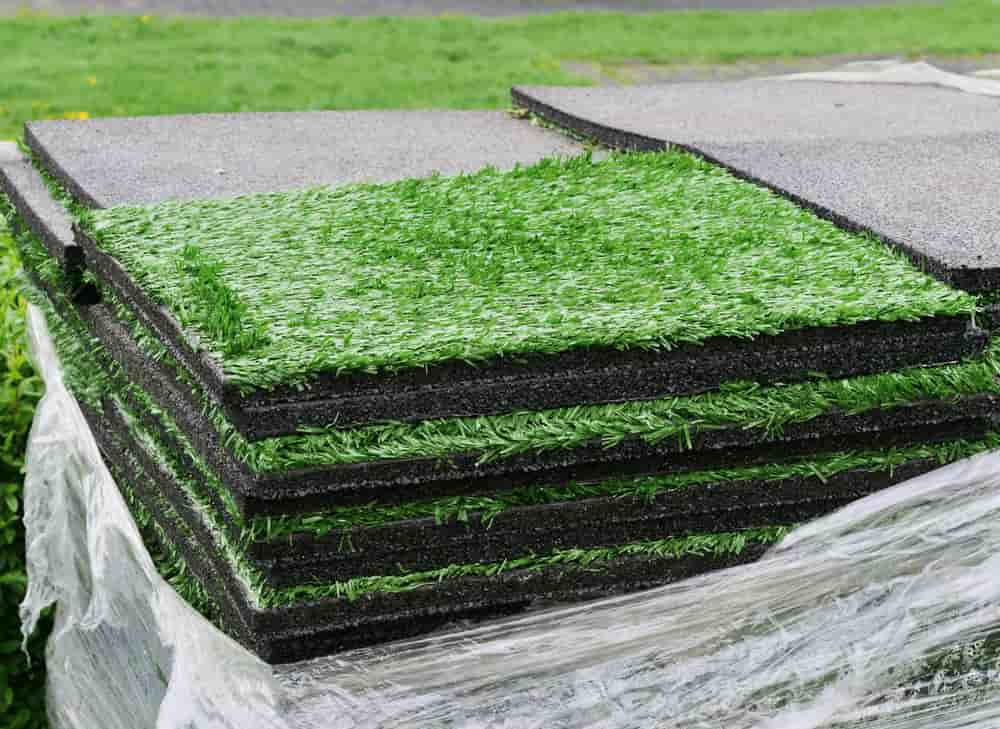Upgrade Your Outdoor Space with Arizona Artificial Turf for a Lush Green Look
Upgrade Your Outdoor Space with Arizona Artificial Turf for a Lush Green Look
Blog Article
Delve Into the Environmental Benefits of Opting for Synthetic Grass Solutions
The fostering of synthetic grass remedies provides a compelling possibility to attend to pressing ecological difficulties. By considerably reducing water use and minimizing the application of hazardous chemicals, these choices not just promote lasting landscaping but additionally secure regional ecosystems. The reduced carbon impact connected with lowered maintenance tasks contributes to a much more lasting method to land monitoring. The effects of these benefits prolong past plain conservation initiatives, elevating questions regarding their long-lasting influence on habitat preservation and general eco-friendly balance. Checking out these measurements discloses a complex interplay worth thinking about.
Water Conservation Perks
One of the most considerable advantages of synthetic turf is its ability to conserve water. Traditional turf lawns require substantial irrigation, specifically in locations susceptible to drought or water limitations. On the other hand, man-made grass does not need watering, substantially decreasing the overall demand for water sources. This function is especially useful in deserts where water deficiency is a pushing issue.
By removing the need for normal watering, synthetic lawn contributes to lasting landscape practices and assists mitigate the ecological influence of extreme water intake. The conservation of water expands to the reduction of drainage, which can lead to soil disintegration and waterway air pollution.
Additionally, the installment of synthetic grass allows homeowners and communities to allot water resources a lot more efficiently, concentrating on essential usages such as drinking water and agriculture. The change towards synthetic grass not only promotes responsible water use but additionally lines up with more comprehensive ecological goals aimed at protecting natural sources.
As neighborhoods significantly focus on sustainability, the water conservation advantages of artificial turf present a compelling situation for its fostering in household and industrial landscape design tasks.
Lowered Chemical Use
The change to synthetic grass considerably decreases the reliance on chemical therapies generally made use of in natural turf maintenance. Traditional turf monitoring typically involves the application of pesticides, fertilizers, and herbicides to advertise development and control bugs. These chemicals can present dangers to human health and wellness, local wild animals, and the setting, adding to dirt and water contamination.
In contrast, artificial grass removes the requirement for these hazardous materials. By reducing the launch of synthetic compounds right into the ecosystem, man-made turf promotes much healthier soil and water systems.
Additionally, the absence of chemical runoff linked with synthetic grass installations assists shield local waterways from air pollution, supporting water life and keeping biodiversity. Turf installation phoenix az. As neighborhoods significantly prioritize sustainable methods, going with synthetic grass provides a sensible solution that aligns with environmental preservation objectives. With this shift, homeowner can enjoy lush eco-friendly rooms without compromising environmental health and wellness, leading the means for a more sustainable future
Lower Carbon Footprint

Moreover, the installment of synthetic grass can cause substantial water conservation. All-natural yards call for substantial quantities of water for watering, which not just includes in the carbon impact associated with water extraction and treatment but also stress regional water sources. On the other hand, fabricated lawn requires marginal upkeep, calling for no watering, thereby substantially minimizing water use and its associated energy costs.
In addition, the longevity of man-made lawn contributes to its decreased check my reference carbon effect. With a lifespan of as much as 15 years or even more, the demand for regular substitutes is decreased, causing less waste and reduced power intake in production and getting rid of standard lawn alternatives. Overall, artificial lawn offers a lasting option for environmentally conscious landscape design.
Environment Preservation
Environment conservation is a vital consideration in the discussion over landscape design choices, specifically when contrasting synthetic grass to natural yard. Natural grass yards usually require comprehensive upkeep, including the usage of herbicides, pesticides, and plant foods, which can detrimentally impact neighborhood ecological communities. These chemicals can leach right into the soil and rivers, harming indigenous flora and animals and disrupting neighborhood habitats.
Fabricated turf gets rid of the demand for dangerous chemicals, therefore protecting nearby wild animals and preserving the honesty of bordering ecological communities. The installment of man-made lawn can lead to the conversion of former yard locations right into even more biodiverse landscapes, such as pollinator gardens or native plant areas, which can support local wild animals.
Inevitably, the change to synthetic grass not just saves water and minimizes maintenance efforts but also cultivates an extra harmonious connection between human activities and the natural surroundings, promoting environment conservation in the procedure.
Long-Term Sustainability
Long-lasting sustainability is a vital consider examining the advantages of artificial lawn over standard turf lawns. Among the most significant advantages of synthetic grass is its durability; it can last approximately 15-20 years with very little maintenance, whereas all-natural turf calls for regular reseeding and replacement. This long life minimizes the need for consistent resources, such as water, plant foods, and pesticides, which are essential for keeping a healthy yard lawn.
In addition, man-made turf adds to a reduction in carbon exhausts connected with grass treatment equipment. Standard yards commonly need gas-powered mowers, leaners, and blowers, all of which add to air Turf installation phoenix az contamination. Turf installation phoenix az. In comparison, synthetic grass gets rid of the demand for such equipment, advertising a cleaner setting
Furthermore, the manufacturing of artificial grass significantly utilizes recycled materials, boosting its sustainability profile. As producers embrace environmentally friendly techniques, the ecological footprint of synthetic grass continues to decrease.

Final Thought
The adoption of synthetic grass services offers considerable environmental benefits, including considerable water conservation, minimized reliance on unsafe chemicals, and a lower carbon impact. Additionally, artificial lawn aids in maintaining natural habitats by reducing land disruption and promoting lasting sustainability through using durable products. Collectively, these aspects underscore the capacity of synthetic grass to contribute favorably to ecological health and use a sensible alternative to typical landscaping methods in a significantly resource-conscious globe.
In contrast, synthetic grass does not require watering, considerably minimizing the total demand for water resources. By reducing the release of artificial substances right into the ecological community, artificial turf promotes healthier soil and water systems.
Moreover, the installment of fabricated lawn can result in substantial water conservation. In contrast, synthetic grass needs very little upkeep, calling for no watering, therefore dramatically reducing water usage and its associated energy costs.

Report this page